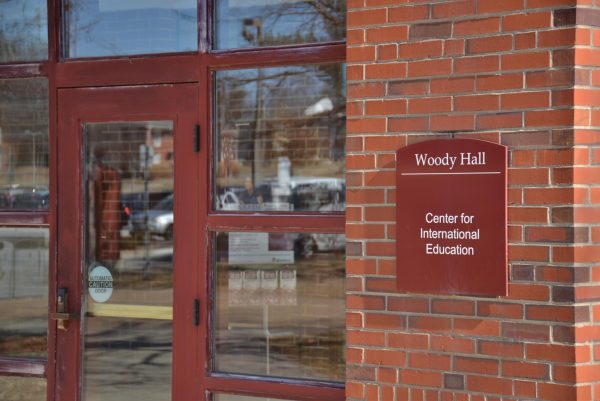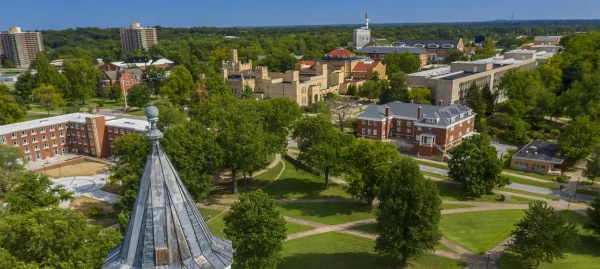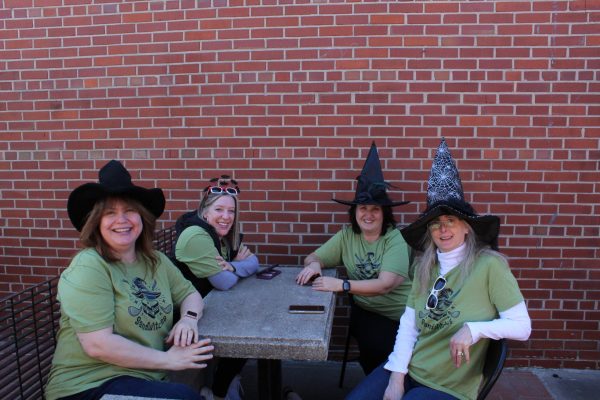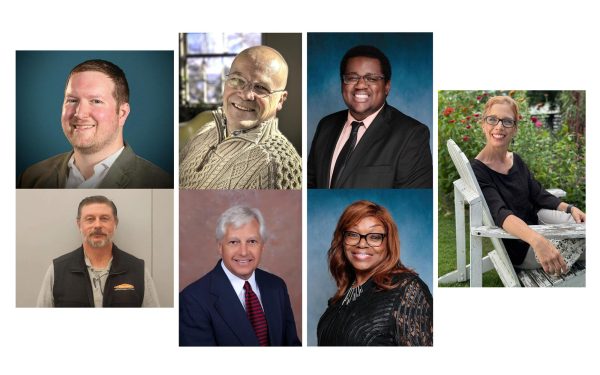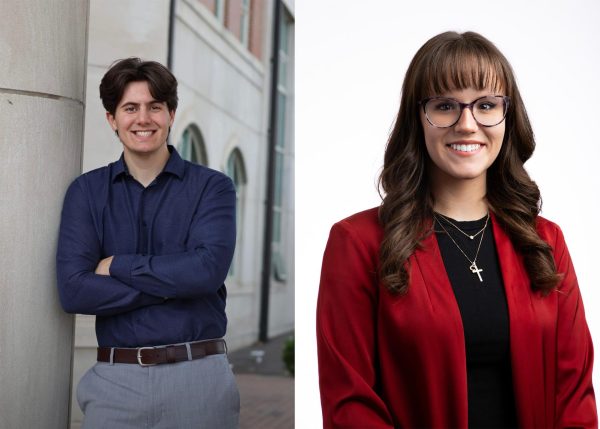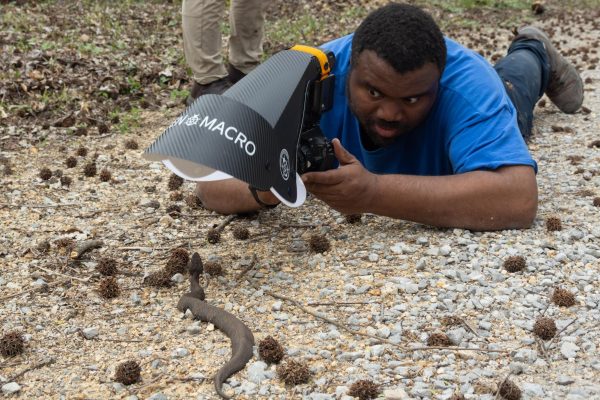Putting a spotlight on restorative justice
The Jackson County State’s Attorney office and the Carbondale Public Library held a webinar called the Introduction to Restorative Justice on March 23 as people in the community discussed changes to implement in the local justice system.
Panelists included main speaker and Restorative Justice Trainer Ted Lewis, Executive Director of Family Advocacy Services Dr. Dollean York-Anderson, Jackson County State’s Attorney Joe Cervantez and third year student at Southern Illinois University (SIU) and Paul Simon Institute Intern Myla Croft.
Lewis said his training consists of scripted role-plays and communication processes that help both the victim and the person who caused the harm so both can heal from the experience.
Advertisement
“It’s an alternative approach to justice that really lifts up community involvement ,” Lewis said. “The possibility of dialogue between harming and harmed people who go through preparation and support it lifts up the whole concept of repairing when we understand crime as mostly a harm done, rather than just the law broken.”
Lewis gave an example of a case with a 16-year-old boy he worked with who stole a four-wheel vehicle for two months and how his program helped the boy take accountability for his actions.
“What that told me is that each time he was hearing something new about how his actions were affecting the other family from his hurt,” Lewis said. “ He wanted to offer some kind of an apology when he learned that and that’s a great indication that he was present, he was taking things empathetically and responding back.”
Restorative justice opens a new door to people who need to talk through their experiences and how they impacted everyone involved, Lewis said.
“When responsible parties come to grips with how their actions have affected other people, It starts to open up within their brains,” Lewis said. “ [It brings an] awareness that they’re not alone in the world, that their actions do have ripple effects and those ripple effects can be harming other people and [be] impactful.”
During his presentation, Lewis highlighted that most people define crime as broken laws or rules and how broken relationships can also play a part.
“Restorative justice puts a little more emphasis on the broken relationships, what’s broken between people, rather than the broken law,” Lewis said. “In western justice, there tends to be such a high focus on dealing with broken law and the punishment that matches it. Sometimes we forget that there’s real people with real emotions and real relationships that speak here.”
Advertisement*
Lewis said there’s debate on how accountability and support coincide with each other.
“This is what I call being smart on crime where you still have high accountability, but now in terms of good responsibility and reparation rather than punishment for its own sake,” Lewis said. “You dignify offenders so that they’re supported well so that they want to step up to the plate and be responsible for what they did as well as moving forward.”
The three R’s of restorative justice are relationship, respect and responsibility, Lewis said.
“When we want to have communication processes, we want to make sure there’s balanced attention to those who are harmed and to those who have caused them harm and we want to involve the community to support people,” Lewis said.
Lewis said lack of communication leads to mistrust when people are left with their own portrait of a certain situation.
“We want bridgework to happen between folks and bridges where it’s not just bringing people together it’s also connecting. I call it speaking and the act of being heard,” Lewis said.
During the Q&A, Lewis was able to clarify details about his restorative justice training and get the opinion from people in the community and the other panelists.
Dr. York-Anderson said she’s been working towards bringing restorative justice to the community since January of 2020 and talked about the positives that come with it.
“When they came to a point where they were able to hear one another and it was almost like a sigh of relief that they were able to do that,” Dr. York-Anderson said. “It was like a breakthrough experience for them. And I thought that was a very good experience for me to have experienced with them.”
Dr. York-Anderson said taking this approach by helping both sides heal from crimes committed would be a good skill to develop.
“Actually empowering the offender to some extent [by] giving the offender a voice but it also empowers the victim in that it gives the victim a voice,” Dr. York-Anderson said. “It takes time to educate people.”
Dr.York-Anderson took Lewis’s training in November and did a restorative justice program with her company, Family Advocacy Services,and asked how he usually gets a victim to come around to doing something like this.
“Our job is just to hold a space where dignifying conversations can happen and we pretty much accept people where they are and that includes both victims and offenders,” Lewis said. “Our job is just to make sure it’s respectful and as good and empowering as it can be.”
Lewis said his training usually involves a preparation meeting for both sides, but families that feel strongly impacted by their situations get more preparation time.
State’s Attorney Cervantez spoke about wanting to be the person to help jumpstart a restorative justice program in Carbondale and fund the training and how he’ll pay for it.
“I’m at a point where the grants are great, but I don’t believe that our community can always just sit back and use that G-word all the time,” Cervantez said. “I want organizations and community organizations to go out for these grants and eventually have a restorative justice program.”
Dr. York-Anderson said her organization is applying for state grants in hopes of getting funding near the end of July to set up a one-year pilot program for restorative justice.
With Cervantez wanting to kickstart the training, paying for resources and the people’s time could be funded through other programs at the State’s Attorney’s office, he said.
“I want to make sure we have members of the community who are trained and we can seek other grants and other routes,” Cervantez said. “But, again, I want to make sure that Jackson County is responsible for Jackson County, grant or no grant.”
Staff reporter Jamilah Lewis can be reached at jlewis@dailyegyptian.com or on Twitter @jamilahlewis. To stay up to date with all your southern Illinois news, follow the Daily Egyptian on Facebook and Twitter.
Advertisement





